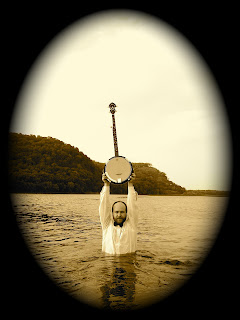
Dasha Kelly is a nationally-respected advocate for writers and the art of spoken word. Locally, she is the founder and director of Still Waters Collective, an outreach initiative utilizing creative writing as tool to build new models of leadership and empowerment. Kelly’s brand of training and development has been widely requested and used by colleges, K-12, correctional institutions, non-profit groups, corporate teams, artists and arts organizations. In addition, Dasha works to broker professional development and performance opportunities for local artists and writers. Most recently, she was invited to work with the University of Wisconsin's First Wave Urban Arts Scholarship as National Recruitment Director. In her own craft, Dasha is an accomplished writer, a seasoned performer and engaging public speaker. She has written for magazines such as Upscale, Black Enterprise and Milwaukee; her narrative essays appear regularly online, including OnMilwaukee.com; her 2003 novel, All Fall Down, earned her a place in Written Word Magazine's "Top Ten Up-and-Coming Writers of the Midwest" list; she performed on the season six premiere of HBO presents Russell Simmons' Def Poetry Jam; her one-woman show "Anthems for Grown Folks" is being developed into a traveling production; and she works extensively as a keynote and motivational speaker. Dasha has recently released a collection of writings through Penmanship Books and is working on her second novel.
 Jesse Lee Kercheval
Jesse Lee Kercheval is the author of eleven books of fiction, poetry, and nonfiction. Her novella
Brazil (Cleveland State University Poetry Center, 2010) won the Ruthanne Wiley Memorial Novella Contest. Her poetry collection
Cinema Muto (Southern Illinois University Press, 2009) was selected by David Wojahn for a Crab Orchard Open Selection Award. Her story collection
The Alice Stories (University of Nebraska Press, 2007) won the Prairie Schooner Fiction Book Prize. Her first story collection
The Dogeater (University of Missouri Press, 1987) won the Associated Writing Programs Award in Short Fiction.
Space (Alonquin Books, 1998), her memoir about growing up near Cape Kennedy during the moon race, won the Alex Award from the American Library Association. Her novel
The Museum of Happiness, set in Paris in 1929, has been reissued with a new afterword by the author by the University of Wisconsin Press as part of the Library of American Fiction. Her popular writing text
Building Fiction has also been reissued in trade paperback by the UW Press. Her other poetry collections are
Dog Angel (University of Pittsburgh Press, 2004) and
World as Dictionary (Carnegie-Mellon University Press, 1999). She is also the author of two poetry chapbooks,
Chartreuse (Hollyridge Press, 2005) and
Film History as Train Wreck (Center for Book Arts, 2006) which won the 2006 Center for Book Arts Chapbook Prize. Her individual stories and poems appear regularly in magazines in the U.S, the U.K., Ireland, Italy, Germany, Japan, Canada, New Zealand, and Australia. She has been the recipient of fellowships from the National Endowment for the Arts, the Radcliffe Research and Study Center at Harvard, the Bread Loaf Writers’ Conference, the Wisconsin Arts Board, the Corporation of Yaddo, and James A. Michener and the Copernicus Society. In 1987, she joined the writing faculty at the University of Wisconsin-Madison where she is currently the Sally Mead Hands Bascom Professor of English and the director of the Wisconsin Institute for Creative Writing. She was also the founding director of the MFA Program in Creative Writing at Wisconsin.
Tim Kloss, son of Gerald "Slight Kloss-Eyed" Kloss of the old Milwaukee Journal, is the emcee of Poet's Monday, a poetry venue in its twenty-first year. A poet since high school, Tim is also a piano student, a songwriter, aspiring composer, and filmmaker (his movies include "Robot from Space," "Dr. Jekyll's Ghost," and "Planet of the Grapes") and spends most of his time painting.
Emily Dickinson was born in Amherst at the Homestead on December 10, 1830. Her quiet life was infused with a creative energy that produced almost 1800 poems and a profusion of vibrant letters. Her lively childhood and youth were filled with schooling, reading, explorations of nature, religious activities, significant friendships, and several key encounters with poetry. Her most intense writing years consumed the decade of her late 20s and early 30s; during that time she composed almost 1100 poems. She made few attempts to publish her work, choosing instead to share them privately with family and friends. In her later years Dickinson increasingly withdrew from public life. Her garden, her family (especially her brother’s family at The Evergreens) and close friends, and health concerns occupied her. With a few exceptions, her poetry remained virtually unpublished until after she died on May 15, 1886. After her death, her poems and life story were brought to the attention of the wider world through the competing efforts of family members and intimates.






































